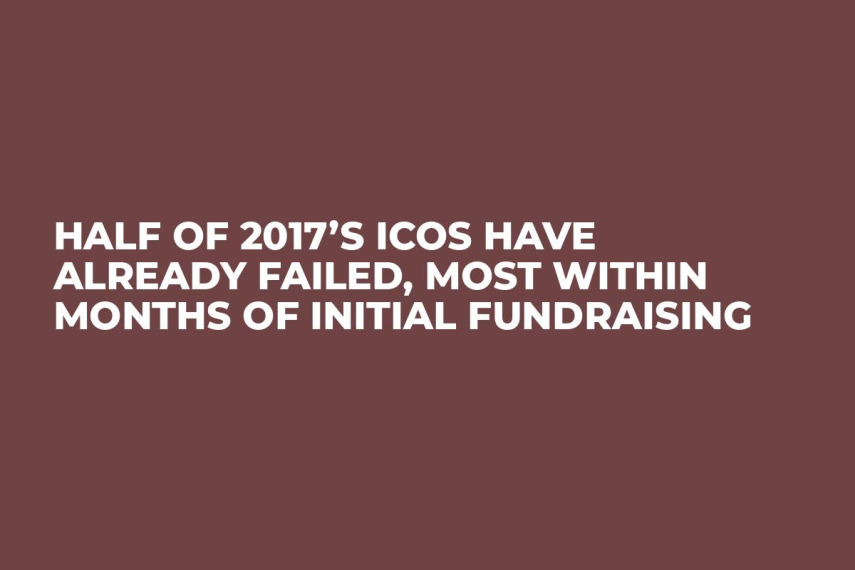
Roughly half of all ICOs in 2017 have failed, according to Fortune. The number gets even higher- 59 percent- when you include projects that “semi-failed,” where the founders essentially went off the radar or the community lost interest and died. All told, investors lost $233 mln on failed ICOs last year. While these numbers seem dismal, ICO proponents would point out that three quarters of all traditional startups fail.
ICO craze
The ICO craze began in early 2017, around April, when the price of Bitcoin and other digital currencies really began to soar. Blockchain-related projects have been using Initial Coin Offerings since Mastercoin offered their tokens for sale in 2013. Ethereum is the most famous early ICO, as the project’s founders raised $18 mln to pay for the creation of the software.
A number of large ICOs put the fundraising method on the map, with the largest ICO, that of Filecoin, raising over $250 mln. Tezos raised $232 mln and EOS netted $185 mln. Such massive raises brought the total amount of ICO funding last year to an astonishing $5.6 bln. By contrast, traditional venture capital provided only $1 bln in funding for Blockchain startups.
Numbers possibly skewed
Considering that three-quarters of all traditional startups fail, ICOs don’t sound so bad with their nearly 50 percent failure rate. But the problem is timing. Since the ICO mania really began soaring only in the last four months of the year, these numbers are severely skewed. When you consider that most ICO failures have happened within only a few months, it paints a pretty grim picture of the failure rate.
Likewise, the average ICO, including failures, returned 1,280 percent of an investor’s initial capital. However, much of that ROI comes from ICOs that happened earlier in the year. For an ICO investor who didn’t get involved until the second half of the year, things undoubtedly look much worse.
With regulatory clouds gathering and so many ICO-funded startups failing a few months after their ICO, investors need to be wary and exercise due diligence. The ICO market is starting to look a lot like the dot-com market in the late 1990s, and for every Amazon.com that survives and thrives, there will be dozens of companies like Pets.com that don’t.
 Arman Shirinyan
Arman Shirinyan Dan Burgin
Dan Burgin Alex Dovbnya
Alex Dovbnya